All Stories
-
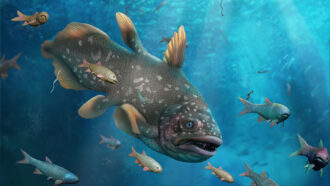 Fossils
FossilsOcean life may have bounced back after the ‘Great Dying’
Marine ecosystems may have been back in action just a million years after the most severe extinction event known.
By Nikk Ogasa -
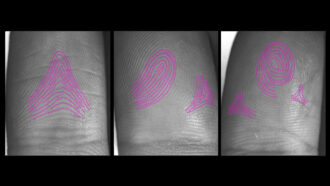 Humans
HumansHow fingerprints form is no longer a mystery
A mathematical theory proposed in the 1950s helps explain how fingerprint patterns such as arches, loops and whorls arise.
-
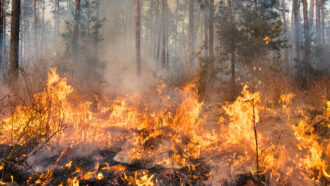 Ecosystems
EcosystemsLet’s learn about how wildfires keep ecosystems healthy
Wildfires are so important for many ecosystems that sometimes professionals set them on purpose.
-
 Chemistry
ChemistryScientists Say: PFAS
Non-stick coatings, stain-resistant cloth and other common materials leach long-lived PFAS into soil and water.
-
 Climate
ClimateDue to global warming, major league hitters are slugging more home runs
Major League Baseball has seen an average of 58 more home runs each season since 2010. The apparent reason: reduced friction on the balls in warmer air.
-
 Tech
TechRecycling rare-earth elements is hard — but worth it
As demand for these valuable metals has been skyrocketing, scientists have begun inventing new — and greener — ways to reuse what they have in hand.
By Erin Wayman -
 Earth
EarthRare earths’ hidden electrons make much of modern tech possible
Because of their unique chemistry, rare-earth elements can generate powerful magnetic fields and fine-tune light for a wide range of applications.
By Nikk Ogasa -
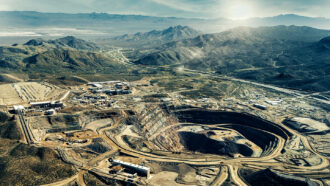 Environment
EnvironmentRare-earth mining is dirty but key to a climate-friendlier future
That’s spurring new research to find a steady but safer supply of these precious metals, including in the United States.
-
 Brain
BrainIngredients in popular snack foods can make them addictive
Researchers find that highly processed foods rich in sugar and added fat may be as addictive as tobacco.
-
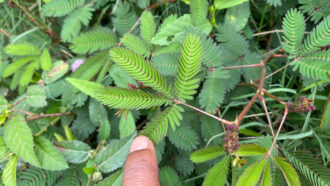 Plants
PlantsMimosa plant ‘muscles’ fold tickled leaves fast
A mimosa plant uses special cells to close leaflets when bumped and then reopen them — again and again.
By Susan Milius -
 Earth
EarthScientists Say: Altitude
Altitude is used to describe heights in geography, astronomy and math.
-
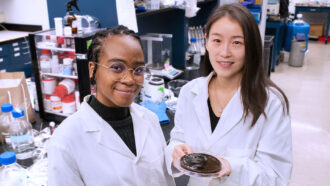 Tech
TechA new solar-powered gel purifies water in a flash
The unusual, fruit-inspired structure of this material provides quick filtration that could satisfy people's daily water needs.